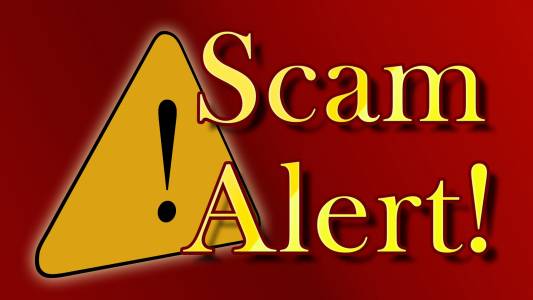
“The pandemic has not only had a serious impact on the health and safety of Georgia citizens, it has also created a financial hardship for many families,” says Attorney General Carr. “Unfortunately, we continue to hear of new ways that scammers are seizing on these challenging times by trying to cheat consumers out of their money. We want Georgians to be aware of these scams and know we are working with our partners, including the COVID-19 Fraud Task Force and the Federal Trade Commission, to stop this behavior.”
The Attorney General’s Consumer Protection Division is advising consumers to be on the lookout for the following scams:
- Contact Tracing Scams. Contact tracing is the process of identifying people who have come in contact with someone who has tested positive for COVID-19, instructing them to quarantine and monitoring their symptoms daily. Contact tracers are usually hired by a state’s department of public health and work with an infected person to get the names and phone numbers for everyone the infected person came in close contact with while he or she was possibly contagious. Scammers are taking advantage of this process by posing as contact tracers to try to get access to consumers’ personal or financial information. With legitimate contact tracing, the health department may send a text message to a person who may have been exposed to COVID-19 letting them know they will be receiving a phone call from a contact tracer. What the scammers are doing is sending spam text messages that include a link, which, when clicked on, downloads malware onto your device, allowing the scammers to access your personal and financial information.
Tips for avoiding this scam:
- If you get a text message like the one described above containing a link, delete it without clicking on the link or replying.
- The Public Health Department and legitimate contact tracers will not ask you to provide your Social Security number, bank account number or credit card number.
- Legitimate contact tracing is of vital importance in controlling the spread of the virus. If you are not sure whether a contact tracing call or text message is legitimate, contact the Georgia Department of Public Health at dph.georgia.gov or 1-866-782-4584. To learn more about contact tracing in Georgia, visit dph.georgia.gov/contact-tracing.
- False Promises of Additional Stimulus Money. Scammers posing as IRS employees are calling and texting consumers claiming they can provide the consumer with additional stimulus money. In one scenario, the imposters say they will first need to install a software program on the consumer’s device to access his or her account. To pay for the software, the consumer is instructed to purchase a $1,000 gift card from Target and then forward the gift card number and PIN to the scammer.
Tips for avoiding this scam:
- You do not need to pay any money to receive your stimulus payment.
- If the IRS needs to contact you, they will always make initial contact through regular mail. The IRS will never contact you via email, text message or social media.
- To check your eligibility for or the status of an economic impact payment from the IRS, visit irs.gov/coronavirus/economic-impact-payments.
- Remember — legitimate entities will never ask you to pay for a product or service by purchasing a gift card.
- Work-at-Home/Car Advertising Scam. With many people being laid off or having reduced work hours due to the impact of the pandemic, scammers are posing as employers and trying to con people into spending money for the promise of a job. In one fake-check job scam, fraudsters send out an email saying they’re looking for individuals who will shrink wrap their vehicles with ads promoting well-known brands in exchange for $400 per week. When consumers respond to the email, they are asked to provide their name and address. The scammers then send them a check for a couple of thousand dollars and instruct them to keep $450 (allegedly for the $400 weekly payment plus $50 for gas) and wire the remaining amount to the decal installer. But there is no decal installer, the check is counterfeit, and the consumers are unable to recoup the money they sent to the scammers.
Tips for avoiding this scam:
- If you get a message instructing you to deposit a check and wire money back, it is a scam, period.
- With legitimate car wrap opportunities, the company pays the car-wrapping vendor directly instead of asking you to do it.
- Be highly suspicious of any work-at-home job that requires you to pay money up-front.
To report scams, contact the Attorney General’s Consumer Protection Division by visiting consumer.ga.gov or calling 404-651-8600.

1 Comment
Leave a Reply
Cancel reply
Leave a Reply

Georgia News
Kemp Signs Historic Tax Cut Package Into Law

Bulloch Public Safety
Statesboro Police Dept Investigating Shooting at Vault Apartments, Two Arrested

Bulloch Public Safety
04/18/2024 Booking Report for Bulloch County

Chattooga Local News
Get Ready for the Buzz: Cicadas to Emerge

Bulloch Public Safety
03/25/2024 Booking Report for Bulloch County

Bulloch Public Safety
04/09/2024 Booking Report for Bulloch County

Bulloch Public Safety
04/01/2024 Booking Report for Bulloch County

Bulloch Public Safety
04/08/2024 Booking Report for Bulloch County

Bulloch Public Safety
04/15/2024 Booking Report for Bulloch County





NELDA SMITH
May 25, 2020 at 9:00 am
LIKE STACEY ABRAM’S ILLEGAL BOGUS BALLOT HARVESTING IN OUR 2018 ELECTIONS ? WHY ISN’T STACEY ABRAMS IN PRISON?